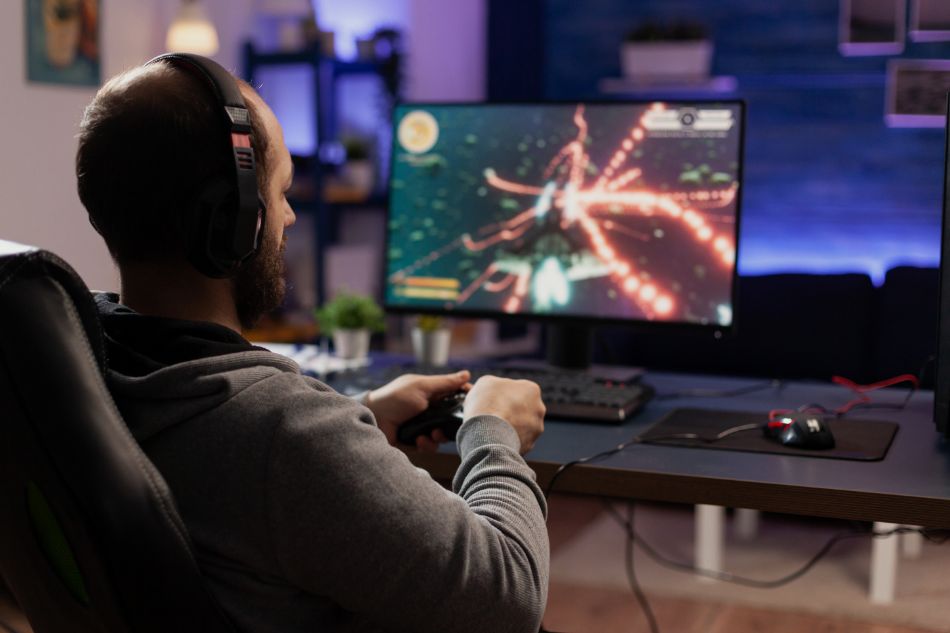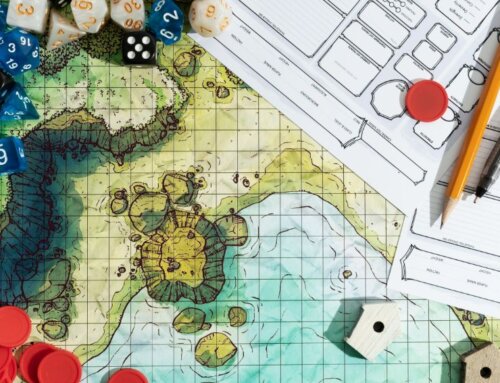If you’ve ever heard the saying ‘An ounce of prevention is worth a pound of cure,’ you might be wondering why your games are crashing. Picture this: you’re in the middle of an intense gaming session, and suddenly, the screen freezes, and your heart sinks.
But fear not, there are concrete steps you can take to troubleshoot and resolve these frustrating crashes. From hardware compatibility to software updates, let’s uncover the underlying causes and solutions for your gaming woes.
Key Takeaways
- Upgrade hardware components to meet game requirements and prevent crashes.
- Avoid overclocking instability by resetting CPU and GPU settings to default.
- Optimize gaming settings for smoother performance and reduce crashes.
- Ensure graphics card compatibility with PSU and maintain OS and driver updates.
Hardware Specifications Impacting Game Crashes
Insufficient hardware specifications can directly contribute to game crashes by limiting your system’s ability to efficiently process and run demanding gaming software. CPU bottlenecking occurs when the processor is unable to keep up with the demands of the game, causing performance issues and potential crashes.
Memory management also plays a crucial role in game stability; inadequate RAM or VRAM can lead to the system struggling to handle the game’s requirements, resulting in crashes. It’s essential to ensure that your hardware components, such as CPU and memory, meet or exceed the game’s recommended specifications to minimize the risk of crashes.
Upgrading these components can significantly improve your system’s performance and reduce the likelihood of experiencing game crashes due to hardware limitations.
Overclocking and Game Stability
When pushing your hardware beyond stable limits, overclocking can potentially lead to game crashes. Overclocking can cause instability in both the CPU and GPU, resulting in games crashing.
Resetting the CPU and GPU to default settings can often resolve crashes caused by overclocking. Unstable GPU settings from overclocking can lead to game instability and crashes, affecting your overall gaming experience.
It’s crucial to have proper cooling solutions in place when overclocking to prevent overheating, which can also result in game crashes. Monitoring your system’s performance after resetting overclocking settings can help ensure stable gameplay.
To troubleshoot crashes related to overclocking, reverting to default settings and gradually testing overclocking limits can help pinpoint the issue.
Correct PC Gaming Settings
Optimizing your PC gaming settings is essential for maximizing performance and preventing crashes. Graphics optimization plays a crucial role in finding the sweet spot between visual quality and system strain.
Lowering graphics settings can reduce the load on your hardware, preventing crashes caused by excessive strain. Performance tuning allows for a smoother gaming experience by adjusting settings like resolution, texture quality, and anti-aliasing to match your system’s capabilities.
Upgrading your graphics card can also significantly enhance gaming performance, reducing the likelihood of crashes. Proper cooling is another key factor in maintaining system stability during intense gameplay sessions, preventing overheating-related crashes.
Finding the right balance in your PC gaming settings is vital for a crash-free gaming experience.
Graphics Card Compatibility With PSU
To ensure system stability and prevent crashes, verifying the compatibility of your graphics card with your power supply unit (PSU) is crucial. Check the power requirements of your graphics card against the wattage output of your PSU to ensure they’re compatible.
Inadequate power supply can result in system instability, crashes, and even damage to components. Upgrading your PSU to meet the power demands of your graphics card can enhance performance and prevent crashes.
It’s essential to consider power supply efficiency and voltage regulation when assessing compatibility. Consult the specifications of both your graphics card and PSU to guarantee they can deliver sufficient power for your gaming requirements.
Operating System Updates for Stability
Updating your operating system regularly is essential for maintaining stability and ensuring compatibility with games. Before updating, check the system requirements of games to verify the necessary OS version for optimal performance.
Upgrading to a 64-bit operating system can enhance the smooth running of AAA games due to increased memory access capabilities. Using outdated operating systems may lead to compatibility issues and game instability.
Make sure to regularly update your OS, video drivers, and game patches to provide a seamless gaming experience. By staying current with system updates, you not only ensure stability but also optimize performance, allowing you to enjoy your gaming sessions without interruptions.
Comprehensive System Updates
Regularly ensuring the comprehensive updating of your system components can significantly reduce the occurrence of crashes during your gaming sessions. System maintenance is crucial for optimal performance. Keep your operating system, graphics card drivers, and game patches up to date to benefit from software optimization.
System updates often include bug fixes and performance enhancements that address crashing issues. Enabling automatic updates for drivers and system software streamlines the update process for optimal functionality. By staying current with the latest updates, you minimize compatibility issues and potential causes of game crashes.
Prioritize comprehensive system updates to enhance system stability and game performance, ensuring a smoother gaming experience.
Network and DRM Impact on Games
Transitioning from the realm of system updates, the impact of network stability and DRM mechanisms on games can’t be overlooked when troubleshooting persistent crashes.
Network instability, such as high latency or packet loss, can be detrimental, particularly in online multiplayer games where real-time data exchange is crucial. Introducing a VPN while gaming may inadvertently heighten latency, leading to potential game crashes due to delayed information transmission.
Moreover, DRM checks, essential for protecting intellectual property, can sometimes trigger crashes if authentication fails during gameplay. These crashes may occur because DRM software consumes system resources and conflicts with game processes.
To address DRM-related crashes, consider switching to offline modes or conducting DRM troubleshooting to optimize stability and game performance.
Conclusion
Ensure your hardware meets game requirements and avoid overclocking. Optimize settings, check PSU compatibility, update your operating system and drivers, and maintain system updates. Troubleshoot network and DRM issues to prevent game crashes.
By following these steps, you can enhance game stability and enjoy a smoother gaming experience without interruptions. Stay proactive in monitoring your system performance and addressing any potential issues promptly to maximize your gaming enjoyment.
Check out more articles:
Why Video Games Should Be Banned
Why Is My Ps5 Turning off by Itself While Playing Games






Leave A Comment